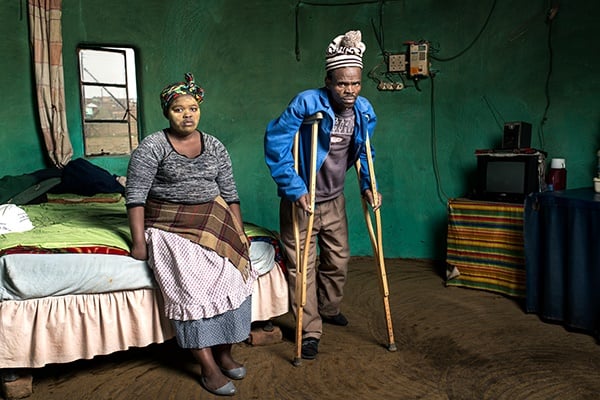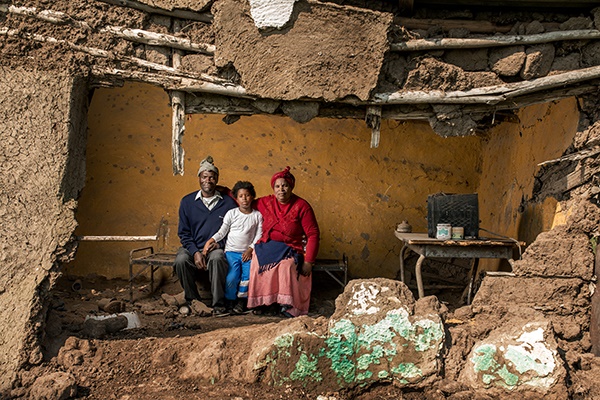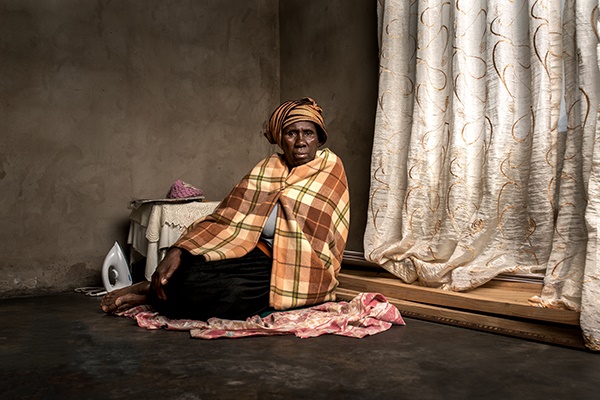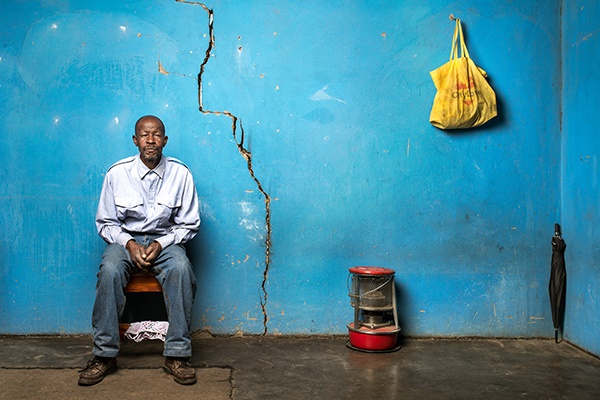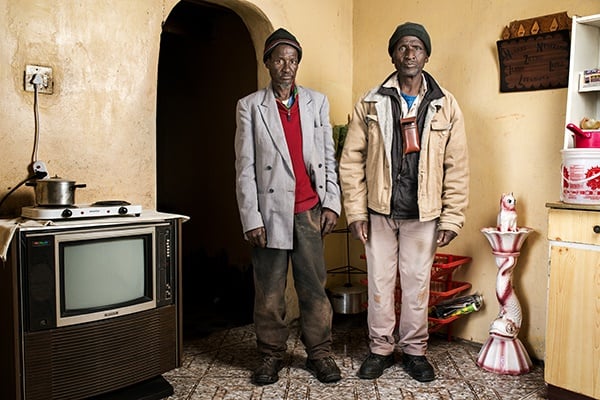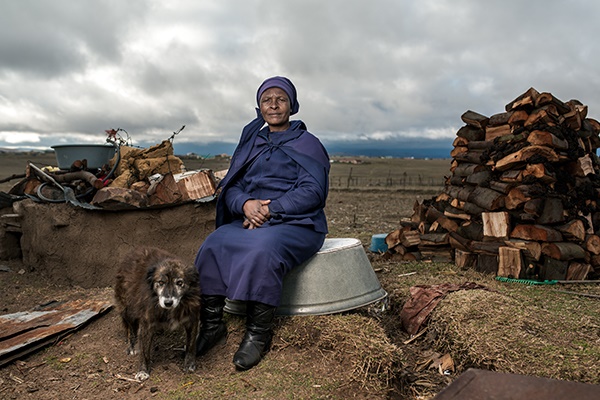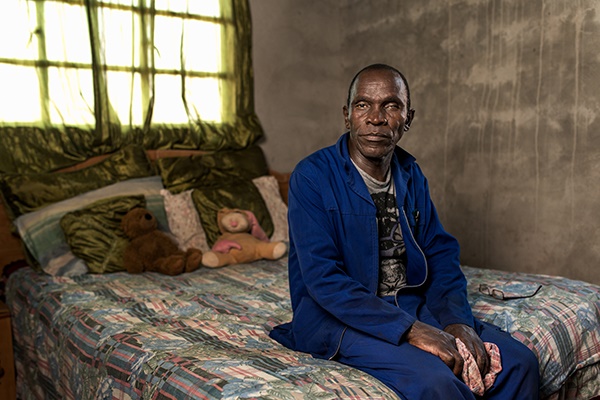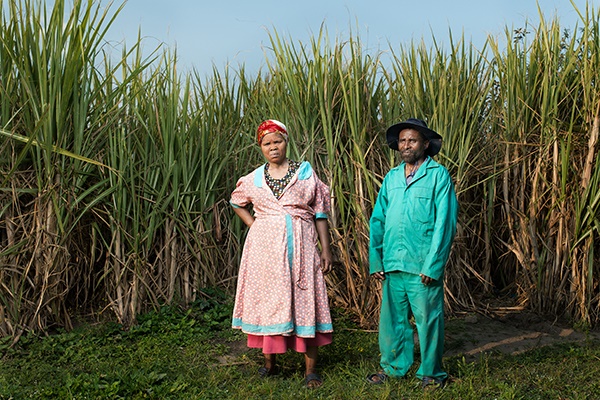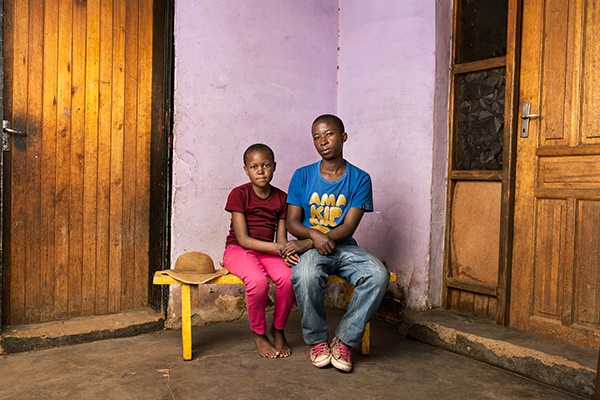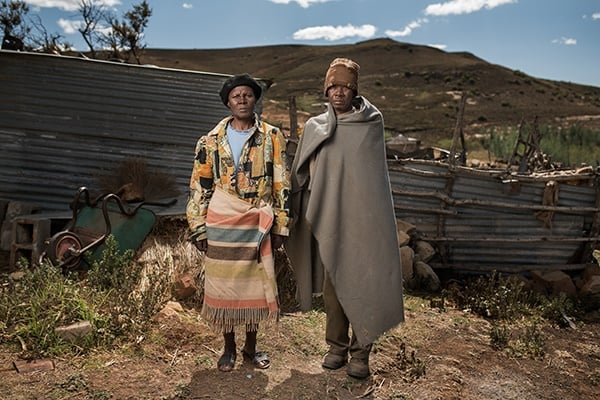Mineworkers who contracted a terminal illness while working underground have started a court case against 32 mining giants.
These workers have silicosis, a preventable but incurable lung disease that is contracted in gold mines through inadequate protection from silica dust.
Photographer Thom Pierce, who was commissioned by the Treatment Action Campaign and Sonke Gender Justice travelled through the Eastern Cape and Free State to document the miners and widows at the forefront of the case against the gold mining giants.
Makatleho Selibo is the Widow of Mahola Selibo who worked as a team leader at President Steyn mine. In total he worked underground for 33 years. He passed away in 2013 and suffered from TB and silicosis. He did not receive any compensation from the mines.
Sekhobe Letsie is 72 years old and lives in on the outskirts of Maseru, Lesotho. Born in 1942 he started work in the mines in 1970, when he was 28 years old. He now has 4 children and lives off the small amount of farming that he can manage and money from his son. He has silicosis and has not received any compensation.
Dyamara Jibhana lives in Whitlesea, Eastern Cape with his brother. He worked on the mines for 39 years and received no compensation when he was diagnosed with silicosis and sent home. He is now 65 years old and waiting to hear whether he will get some money to help him live with his condition.
Nosipho Eunice Dala is the widow of Zwelakhe Dala, who died in March 2015. His death certificate states that he died of natural causes. Aged 55, he had worked in the gold mines for 27 years, and his wife says he got sick from exposure to the silica dust. She is now left with no income except for a small pension. ‘It is too painful,’ she said. ‘If my husband was not working on the mines, he would still be alive’
Malungisa Thole worked at Western Areas Mine for 19 years and was paid no compensation when he developed silicosis. In his spare time he taught himself to weld and now supports his family with his small welding business. “I feel very sad because I worked for the mines, making profit for them but they treated me unfairly by not providing good protective measures.”
Masiko Somi fell sick whilst home on leave. He had been screened at work but had not been told that there was anything wrong with him. He travelled to see a private doctor in Kokstad in KwaZulu Natal who advised him to stay at home for a while to get better. He could not communicate with the mine and when he returned to work he was dismissed because he was late.
Noebejara Tau is 70 years old and lives in Mafeteng, Lesotho. He worked on the mines between 1972 and 2000 as a loader driver. He was diagnosed with silicosis and retrenched.
You can view the entire collection of portraits on Thom Pierce's website here.




 Publications
Publications
 Partners
Partners




